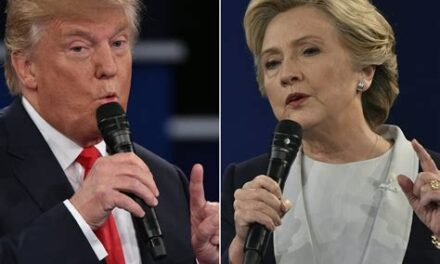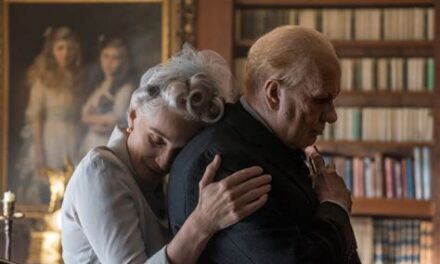The sight of the rabble in Chicago forcing Donald Trump to cancel his appearance, coupled with the attack on Trump in Ohio, reveals the boil his candidacy has lanced on the face of America. The boil has a name, “political correctness,” and millions of Americans eagerly support Trump as the man who doesn’t obey the PC rules as set down by the media and cultural elites.
Political correctness involves many things, but its core is a socially, and sometimes legally, enforced code of conduct and speech regarding primarily race, women, white men, education, sexuality, Islam, multiculturalism, and the Western tradition.
Notice I said conduct and speech, because in a politically correct culture people find themselves thinking one thing and both doing and saying another. The experience of this duplicity leads to confusion, uncertainty, anger, and a sense of isolation. Woe to the high school students who openly object to the “normalcy” of homosexual acts or same-sex marriage. Or ask publicly why, for example, the British Romantic poets — Byron, Wordsworth, Shelley, and Keats — are left out of the curriculum in order to read the literature of “indigenous peoples,” Mexican immigrants, cross-dressers, or slave narratives.
The ultimate aim of political correctness is mind control, the force-feeding of ideas about morality, history, and politics down the throats of people who fear being called out for non-conformity, or even worse, being held back in their careers for not fitting into the PC mold.
The politically correct, for example, would have enjoyed the 2016 Oscars with its “black lives matter” chorus of complaints, and agree with what the “snubbed” cinematographer Bradford Young said about the film industry:
“Here’s the deal: Most of us in the film community, across the board, work with people who we know, who we consider friends and family. If you use that as a barometer to look at the film world, it just shows you how segregated, xenophobic, sexist, racist and backwards we are as Americans in terms of how we deal with one another. . . .”
Really? Then how did this country elect Barack Obama twice, and overwhelmingly so in the 2012 election?
The politically correct would also have applauded when the Academy of Motion Pictures Arts and Sciences suddenly decided to review the diversity of its membership. The president of the Academy who, in fact, is African-American, Cheryl Boone Issacs, remarked:
“While we celebrate their extraordinary achievements, I am both heartbroken and frustrated about the lack of inclusion. This is a difficult but important conversation, and it’s time for big changes. . . . ”
I would guess that the preponderance of the 5,783 voting members of the Academy are predominately self-identified liberals and Democrats. Yet, dozens of African-American actors and directors, Spike Lee, in particular, openly accused Academy members of voting along racial lines. Yes, there were some voices raised in protest, such as Charlotte Rampling, but very few. Almost all bit their tongues, in spite of the racist accusations, and actually applauded as they were receiving tongue-lashings from Chris Rock and Ricky Gervais.
I cite this example at length because it represents one of the latest and most outrageous examples of how political correctness brings even the very powerful to their knees. An accusation that should have been summarily dismissed as ridiculous was treated as truthful in the national headlines for several weeks before and after the Oscars.
Trump, I am sure, has his politically correct side, however, both his manner and bluntness represent an outspokenness, a willingness to say what’s on his mind, rather than revert to the duplicity of pleasing the elites. It’s not merely Trump’s positions on immigration, trade, Islam, or the defunding of Planned Parenthood that churn the pot, rather it’s his unruffled confrontation with the media, critics, fellow candidates, pundits, and protesters that raises their temperature to boiling.
The fact that Donald Trump is getting more airtime on TV and radio, and coverage in the print and digital media, than any other human being in the world, all the while unapologetically speaking his mind, is bound to create a cultural firefight. It’s not unreasonable to fear for Trump’s safety and that of his family.
You may not like much, or any, of what Trump says, but his plainspokenness (yes, it’s a word) harkens back to a trait Americans have always respected and held dear, until the jackboots of political correctness took over the culture.
PS. Just as I finished writing this column, I learned that Ted Cruz partly placed the blame on Donald Trump for the riot in Chicago. I am stunned that he would express such a misjudgment. And I voted for him in the Virginia Primary.














“The machinery of propaganda may pack their minds with falsehood and deny them the truth for many generations of time, but the soul of man thus held in trance, or frozen in a long night, can be awakened by a spark coming from God knows where, and in a moment the whole structure of lies and oppression is on trial for its life.”
— Sir Winston Churchill